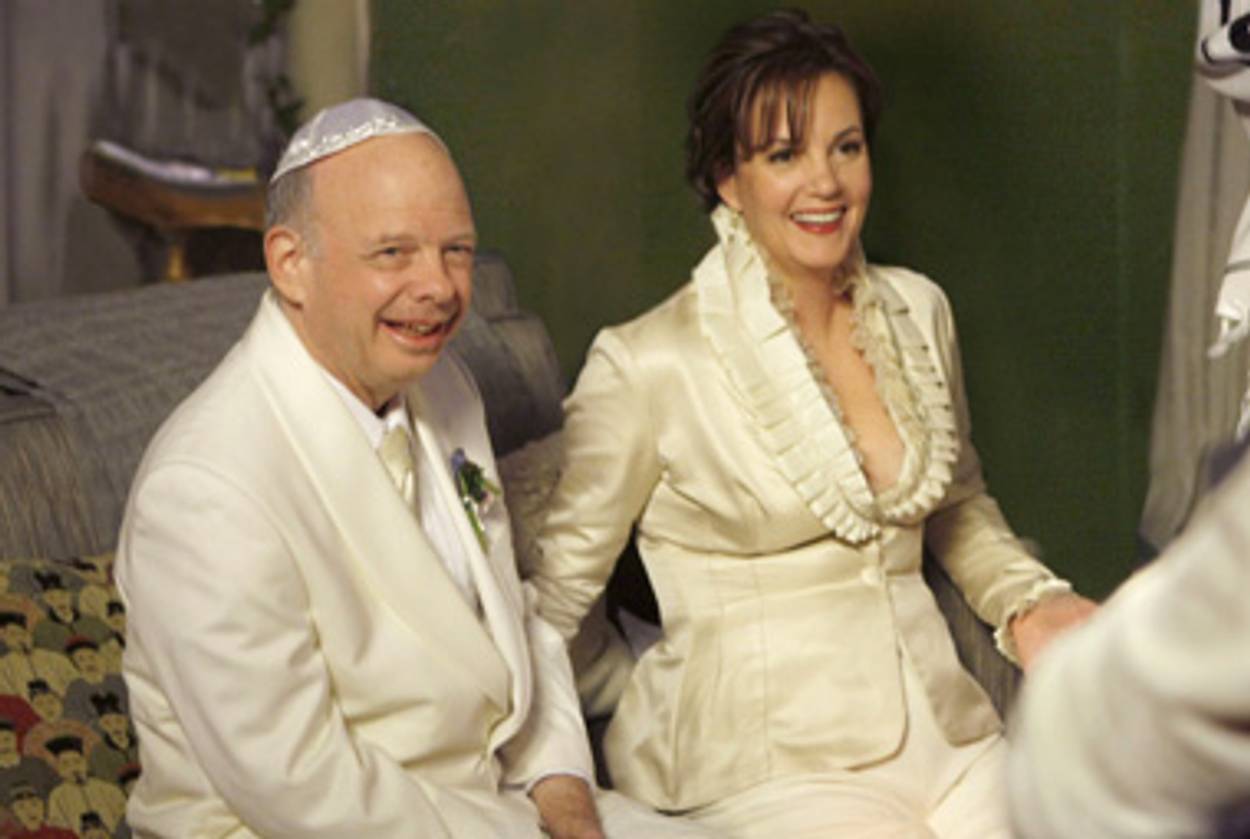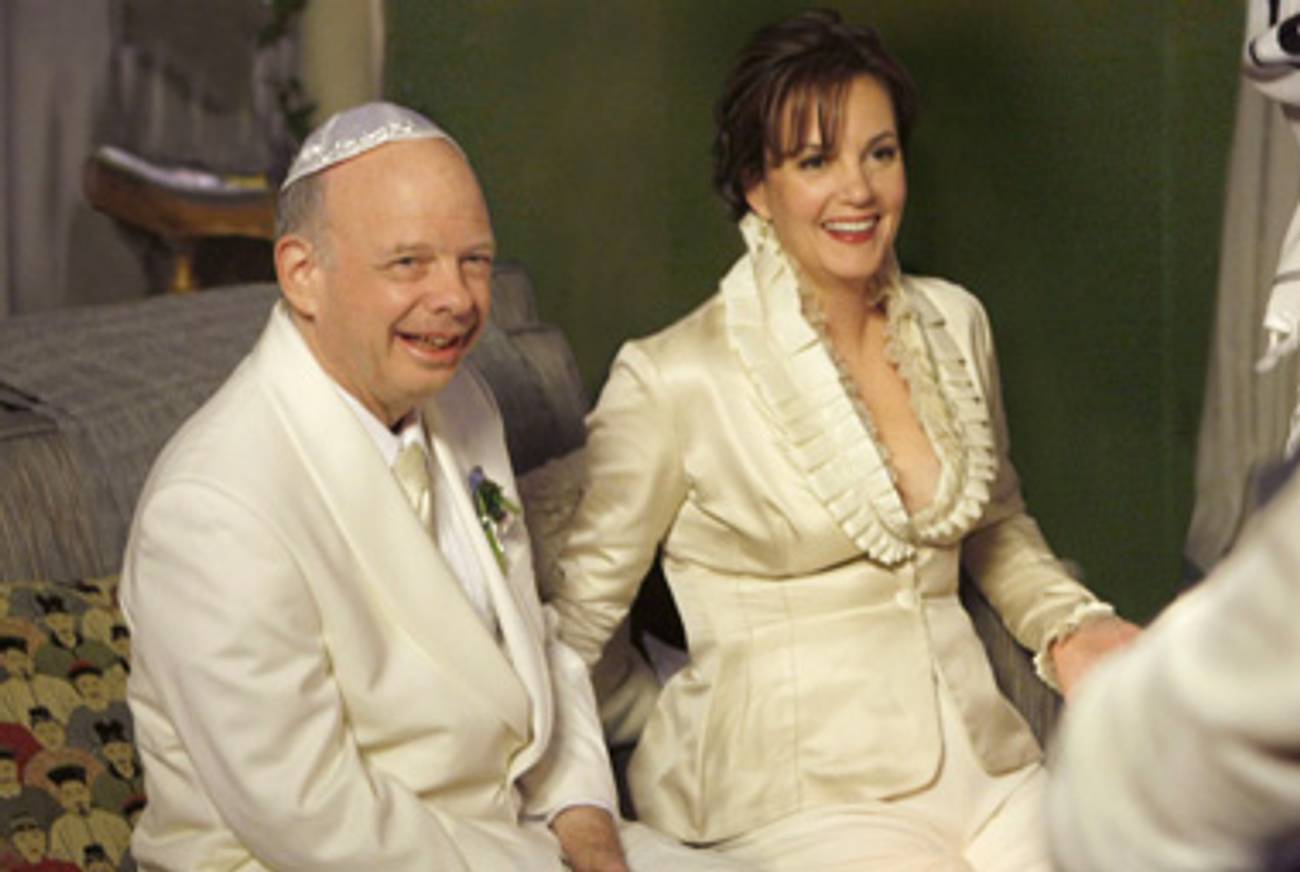Bag of Tricks
Wallace Shawn on being Jewish—onscreen and off




Wallace Shawn may recently have become eligible for Social Security, but the 65-year-old writer and actor shows no signs of slowing down. His latest play, Grasses of a Thousand Colors, had its London premiere in May; he has a recurring role on the hit TV series Gossip Girl; and a collection of his nonfiction, Essays, was just released this week. Tablet Magazine recently spoke to Shawn about his youthful ambitions, Judaism’s place in his life and work, and how Gossip Girl may be the key to Mideast peace.
One of the essays in your new book, which originally appeared in The Nation last year, discusses how “it is not surprising” that centuries of irrational anti-Semitism would color Israel’s attitudes toward its neighbors. Are you arguing that Israeli policy is the product of a persecution complex?
I think that most Israeli leaders have implicitly if not explicitly taken the position that they have the right to act in a way that they themselves might think leaders of other countries might not. They are saying, when challenged, well, you may think what we’re doing is ruthless, but we have the right to do it because this is not just any old country— this is the last refuge of a group of people who have been persecuted for millennia, and we have the right to take these steps. That attitude comes from the history of the Jews. It just does. Do I think it should be attacked and wiped out! No! As I say in the essay, giving the land of Israel to the Jews after World War II was a costless way for Europeans and Americans to atone for what had been allowed to happen to the Jews. It was a gift that was not a great gift.
You often make reference to your Jewish background in your writing. What is your connection to Judaism?
I recognize so many of my characteristics as deriving from my being Jewish. I usually carry a large bagful of things with me, things I think I might need. People mock me and say, “Oh, isn’t that absurd that you carry that large bag.” I don’t honestly know why I carry it. I’m guessing that maybe the Cossacks chased my great-grandfather and he had to escape quickly; he carried a big bag in case he had to run away. I live on the fifth floor of a building with no elevator. It’s rather heavy to carry that bag, and yet I can’t not do it somehow.
What does being Jewish mean to you?
I’m an atheist. I don’t even know what people could possibly be talking about when they talk about God. On the other hand, I’ve always been very drawn to religious music, religious art, and, I have to say, religious people. I have been to quite a few bar and bat mitzvahs, including those of my niece and nephew. In each case, I have been sort of repelled when, for instance, the portion of the Torah that was being read offered a justification for what, by today’s standards, would be considered war crimes—or meaningless lists of items to be sacrificed. I’m thinking, why are we sitting here and listening to this? But then, in each case, something has happened that has actually overwhelmed me with emotion. The Jewish belief in the importance of each individual becoming a decent human being is thrilling. It’s incredibly moving, fantastic—the belief in justice and the belief in thinking about things and examining things. These are deeply moving Jewish values that affect and move even me.
Do you ever feel that, as an artist, you’re not contributing to society as directly as you could?
It’s been a lifelong conflict for me, partly because there was a time I was planning to actually help people, to devote my life to trying to make the world a better place. I was very inspired when I was a young man by a man I knew who worked at the U.N., Brian Urquhart, who now writes for the New York Review of Books. He went in every day and tried to make the world a better place, directly.
When did you decide to change course?
When I was 20, John Kennedy was president. I thought he was the ideal president, and we were the ideal country. And then I traveled. I spent a year in India. I was envious of many people in India who I thought understood more about life. I gave myself permission to be a writer. I thought that what people need is insight.
How do you like playing the ostentatiously Jewish Cyrus Rose on Gossip Girl?
I love playing a Jewish character. Although I play a character who has worn a yarmulke in two out of my five episodes so far, I was fascinated in London this spring to meet many people from Arabic-speaking countries who told me that the show and my character were very popular in their homelands. So I feel I’m contributing to international understanding.
Gwen Orel is a New York-based arts writer.
Gwen Orel is a New York-based arts writer.